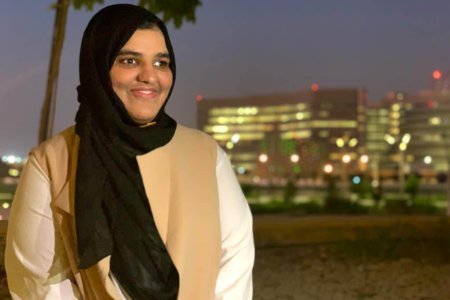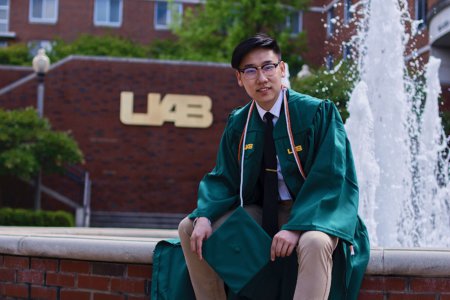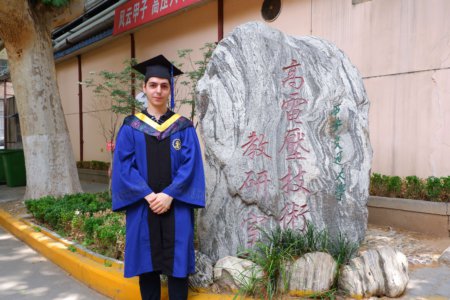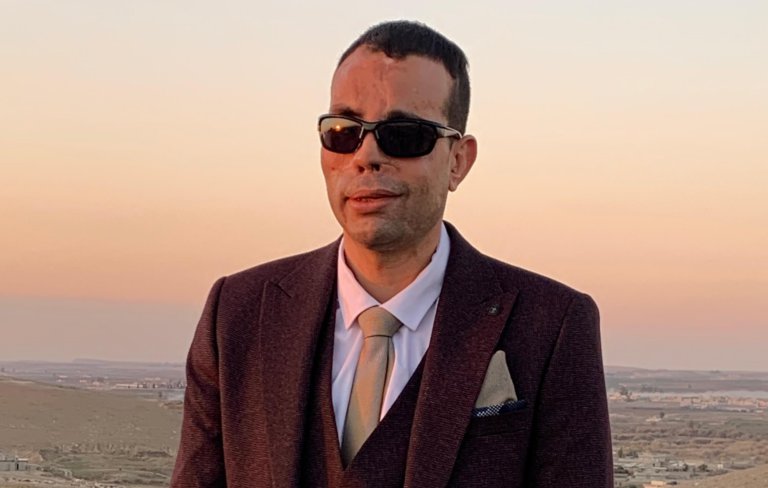
Refugee. Suicide bombing survivor. Aspiring PhD candidate at the University of Texas. It’s no overstatement to aliken Qusay Hussein to a phoenix rising from the ashes.
He was born in northern Iraq, before moving to the ancient city of Hatra when he was 15. After work, he would go to school. In the evenings, he would play volleyball with his friends in a nearby field.
In 2006, a pickup truck drove onto the field where Hussein and his friends were playing and detonated explosives. From that suicide bombing, 56 people were injured and 16 people were killed.
The doctor who first treated Hussein told his father he only had an hour left to live. As miracles would have it, Hussein survived and called out for his father. He had lost his nose, right cheek and half of his skull.
He was only 17. Twelve days later, he woke up from his coma and would ask the nurses to open his eyes everyday but they kept on telling him “Not today.”
For the next two years, Hussein never left the house. The only thing that made life bearable for him was his father who never left his side and told him vivid stories about people overcoming huge obstacles in their lives.

Qusay Hussein is currently pursuing his MS in Social Work with the hopes of going further to obtain a PhD in Psychology. Source: Qusay Hussein
As time went on, Hussein’s injuries needed treatment and technology that were simply not available in Iraq, especially during the war. When he heard a television ad offering medical services for people who were seriously injured, he got in touch straight away.
He was then accepted to a programme for reconstructive surgery at a hospital in Jordan run by Doctors Without Borders.
Hussein spent three years at that hospital undergoing multiple surgeries getting rehabilitative care. During his time there, Hussein took a bus ride with other hospital patients to the Dead Sea, where his ears picked up joy from people dancing, singing and laughing. This inspired him to have a positive outlook on his situation.
Near the end of his treatment, Hussein started thinking about his future and the lack of support for the visually impaired in Iraq. With this thought in his mind, he attended the International Organisation for Migration in Jordan and met someone who inspired him to live abroad. It was a blind doctor from the Palestinian Territories who studied in the US.
After learning English from scratch, Hussein enrolled in community college before going on to graduate from the University of Texas with a BA in Social Work and Psychology. Now, he’s currently pursuing his MS in Social Work with the hopes of going further to obtain a PhD in Psychology.
We caught up with Hussein to learn more about his inspiring journey:
Walk us through your journey in the US. from when you first arrived to where you are now at the University of Texas.
So, before my accident, I was studying to become a plastic surgeon. I lost my vision through a suicide bombing so I had to quit school and work.
After my experience in Jordan with Doctors Without Borders, I applied as a refugee and headed to the US. I started from zero, not knowing anyone and it was really hard.
I had to be super vigilant because I didn’t even speak the language. Then I started English as a Second Language (ESL) and after, I began the General Educational Development test (GED) where I got the second highest score in the region and had a GPA of 4.0.
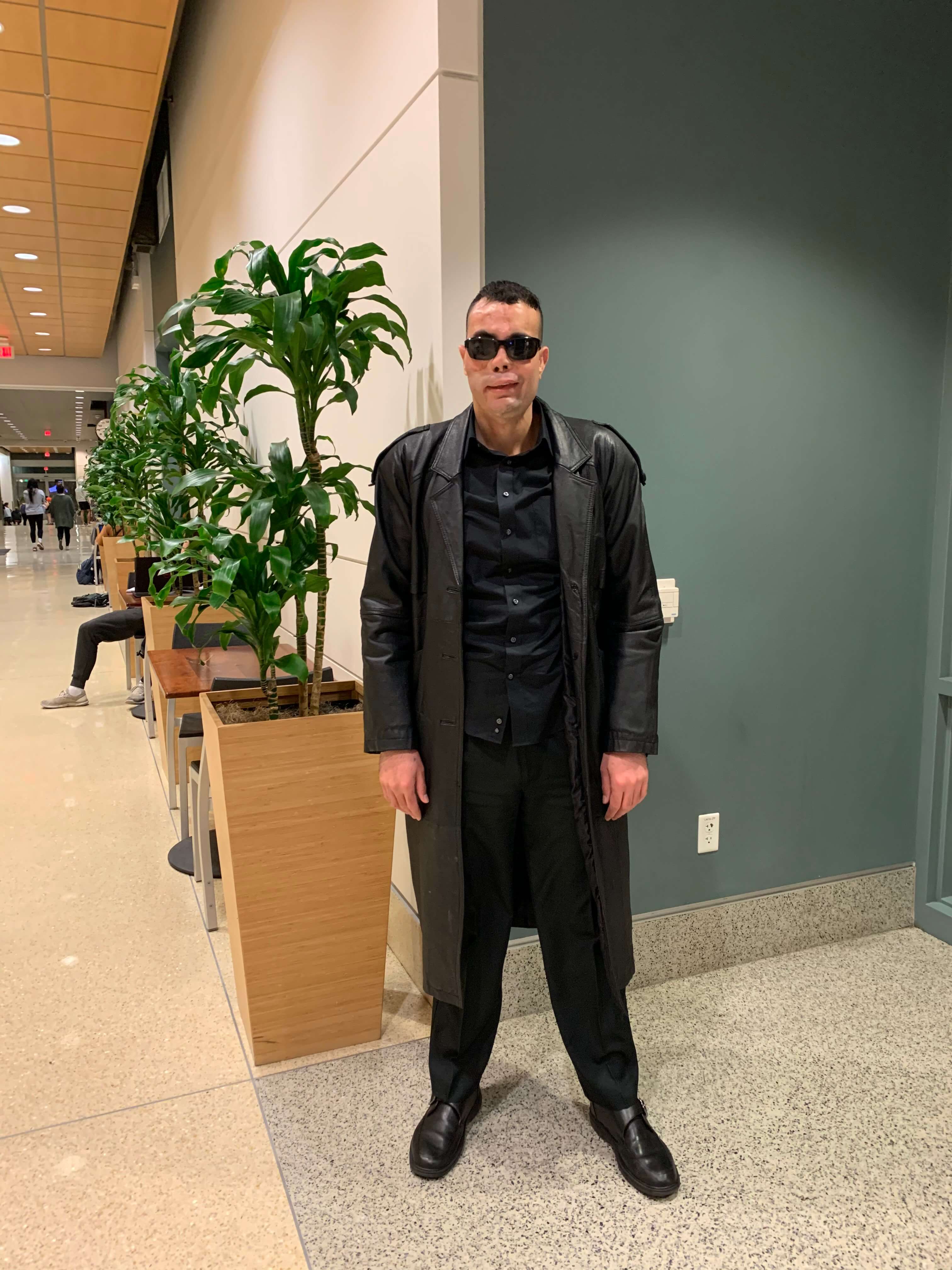
“So, before my accident, I was studying to become a plastic surgeon. I lost my vision through a suicide bombing so I had to quit school and work,” he says. Source: Qusay Hussein
I then studied at the University of Texas where I graduated with honours from my bachelor’s. Now I’m working on my master’s and hopefully will finish in August next year in which I’ll be preparing to apply for my PhD in Psychology.
Where does your interest in psychology come from?
I’d say during college, I had a teacher tell me that I should continue studying to be a plastic surgeon. I would be able to teach it but not practise it or operate it so I felt that it was something my heart wasn’t set on.
I switched to psychology because I love the sense of working within the community. I also travel and give motivational speeches and I think psychology is a big aspect of this.
What was your most memorable experience at the Doctors Without Borders hospital?
After a day trip and from there, realising how happy people sounded being out of the hospital, it inspired me to organise programmes for the patients there. I would collect money for the bus ride and take the patients who were healthy enough to see nature and be out in the world — a sort of mental support therapy.
Does the University of Texas offer the right support for the differently-abled community?
I’m currently doing my master’s in social work and I think the diversity there is very good. At the Steve Hicks School of Social Work, we are very open-minded about the disabled community. They are very supportive and I was even able to create a minor in disability with my professor.
Are your lecturers supportive of your studies thus far?
It all depends on the professor to be honest but luckily, I have a professor who’s very supportive of me and believes in my success.
What plans do you have with a PhD in Psychology?
I plan to teach. I also want to create grants helping the vulnerable and create organisations to support people with disabilities.
What advice do you have for students who are looking to study abroad?
Honestly, go abroad! I love the aspect of being abroad because besides education, you never stop learning about different cultures and new environments. If you have the chance and the right support, I would recommend it because these opportunities don’t come so easily.
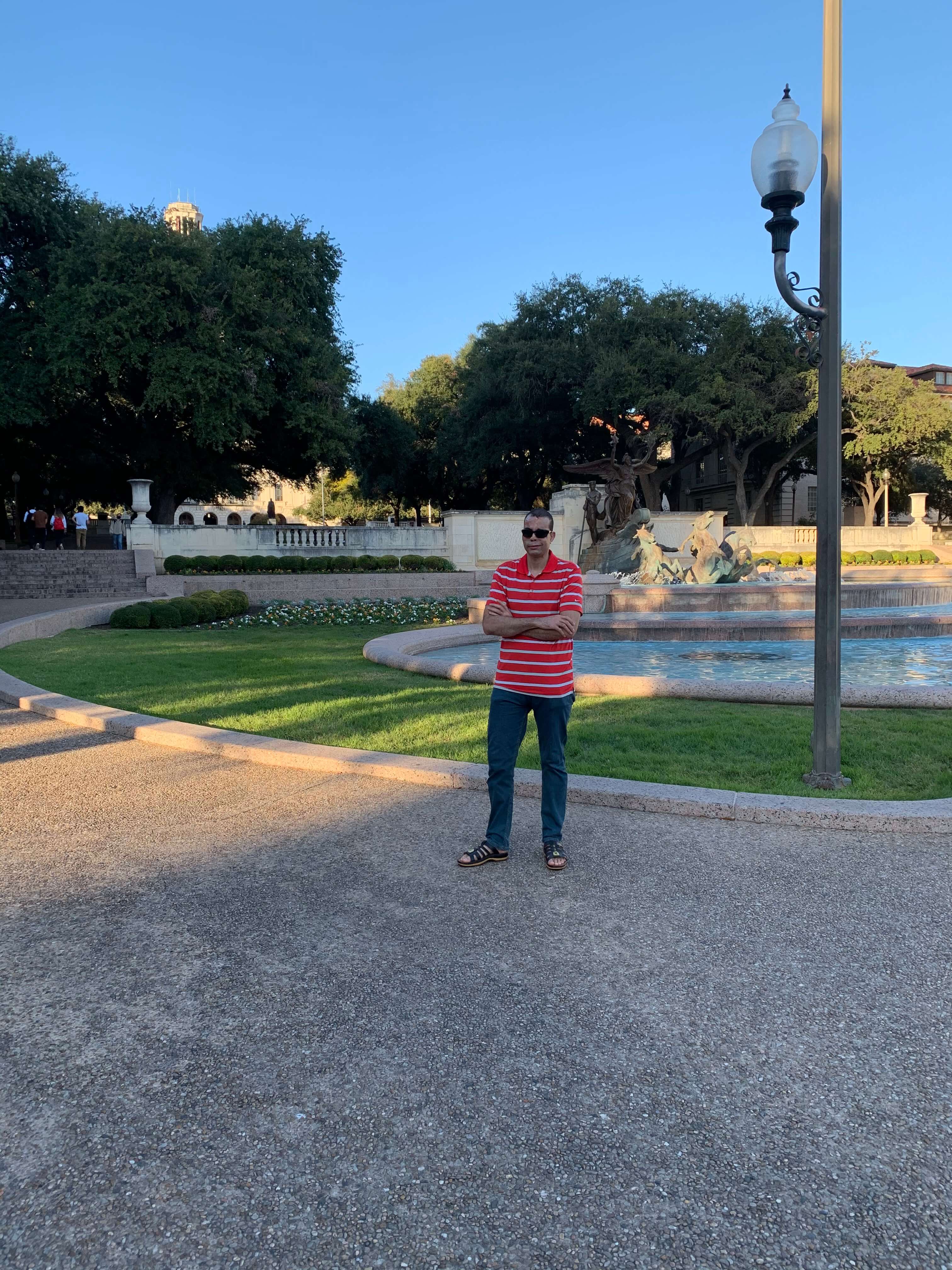
“Now I’m working on my master’s and hopefully will finish in August next year in which I’ll be preparing to apply for my PhD in Psychology,” Hussein says. Source: Qusay Hussein
Besides your PhD, are there any plans on your agenda for the near future?
I consider myself to be a community leader and I also taught myself: I’m not for myself, I’m for the world. I love helping people so my mission is to communicate with everyone which is a legacy I want to work towards.
I’ve also had many interviews (with The Guardian and the New York Times) which led to me writing my first book. I’ve sent it out to publishers already so I’m just waiting for an agent to get back to me — we’ll see when it’s published!
What do you like most about the US?
There is a lot of good within the country. Even though there are obstacles everywhere, you have the opportunity to become a successful person in the US.
Is there anything from home you miss?
I love fish, I love to cook fish on the grill. In Iraq it’s called “masgouf” which is delicious.








